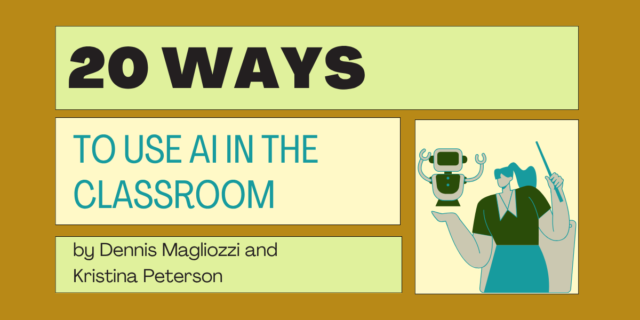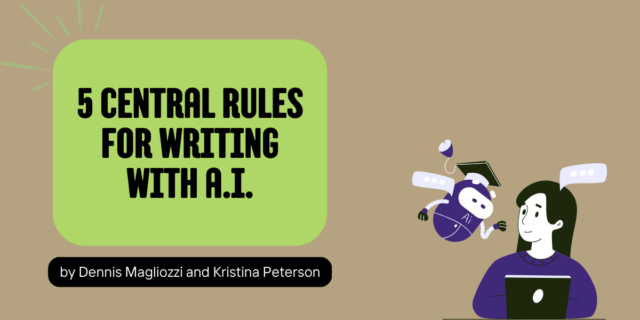
Included in the writing assessment guide Writing Pathways, K-8 by Lucy Calkins and colleagues is a learning progression for writing process. This progression details expectations for children as they grow in their ability to cycle through the steps in the writing process. One thing that is particularly interesting about this learning progression is the way in which it spotlights independence. This makes sense; after all, independence and the writing process go hand in hand. The more a child is able to draw upon the steps in a clear, consistent process, the more she is able to explore her own creativity inside of this process.
In the early stages of independence in writing, expectations are that children should be able to recall a topic or event to write about, and that they are beginning to see their own lives a worthy source of writing ideas. Later, beginning in late 3rd grade / early 4th grade, the expectation is that children will not only be able to generate ideas to write about with independence, but also that they will be able to choose ideas purposefully, targeting ideas that will give their writing purpose and power. As the writer becomes even more sophisticated and independent, in middle school and beyond, an expectation is that they’ll shift into living more of a writerly life: using their notebooks as a tool to generate thinking and ideas in more flexible and spontaneous ways.
One thing that is helpful is to clarify your specific expectations for children’s independence at different stages across the school year, in reading and writing. You might study the writing process learning progression to get a sense of general expectations for different times in the school year for the grade you teach, and then identify the more granular steps you’ll help your students to take. These granular steps will very as well, depending on the level at which your students come to you and their previous experience with writing workshop. If you teach third graders brand new to writing workshop, for example, they might not yet be meeting the beginning of the year expectation that they come to writing workshop with ideas of things to write about, and that they can draw on a repertoire of strategies with independence. In this case, it may be more helpful to develop expectations more in line with earlier levels of the learning progression, such as helping writers to develop a small handful of strategies to generate ideas.
All of this holds true in reading as well. It’s important to clarify expectations for independence, and to consider the granular steps students will need to take to reach these goals. The hope is that, as students progress up levels of independence in reading, that they move from making choices about what they will read and in what order, along with making choices about when to use a handful of strategies, all the way to authoring independent reading lives for themselves, including setting goals and based on these, developing lines of work for themselves, and coming up with text sets that go with these lines of work.
At this week’s Twitter chat, Elise Whitehouse and Anna Sheehan will lead a discussion on ways to help students to lead with ownership and independence in reading and writing workshop. At this point in the year, it’s important to take stock of how your students are progressing toward independence and whether it would be helpful to shine a light on this all-important focus.
Each Wednesday night at 7:30pm eastern, The Teacher's College Reading and Writing Project hosts a Twitter chat using the hashtag #TCRWP. Join @ewhitehouse09 & @AnnaSheehan627 to chat about empowering students to lead with ownership and independence tomorrow evening.
Not on Twitter? Take Heinemann’s free Twitter for Educators course here.
 Anna Cockerille, Heinemann Editor and Coauthor of Bringing History to Life (Grade 4) in the Units of Study for Teaching Writing Series, was a teacher and a literacy coach in New York City and in Sydney, Australia, and later became a Staff Developer and Writer at TCRWP. She also served as an adjunct instructor in the Literacy Specialist Program at Teachers College. Anna has been a researcher for Lucy Calkins, contributing especially to Pathways to the Common Core: Accelerating Achievement (Heinemann 2012), and the Units of Study for Teaching Reading, Grades 3–5 series (Heinemann 2010). Anna is currently serving as an editor on the forthcoming Phonics Units of Study series for grades K-2, and previously served as an editor for the Units of Study for Teaching Reading, K–5 series.
Anna Cockerille, Heinemann Editor and Coauthor of Bringing History to Life (Grade 4) in the Units of Study for Teaching Writing Series, was a teacher and a literacy coach in New York City and in Sydney, Australia, and later became a Staff Developer and Writer at TCRWP. She also served as an adjunct instructor in the Literacy Specialist Program at Teachers College. Anna has been a researcher for Lucy Calkins, contributing especially to Pathways to the Common Core: Accelerating Achievement (Heinemann 2012), and the Units of Study for Teaching Reading, Grades 3–5 series (Heinemann 2010). Anna is currently serving as an editor on the forthcoming Phonics Units of Study series for grades K-2, and previously served as an editor for the Units of Study for Teaching Reading, K–5 series.


